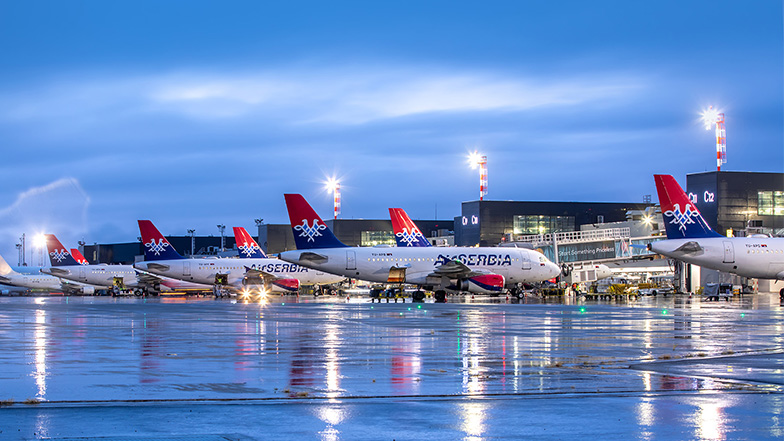Air Serbia suffers deep network compromise in July cyberattack
Internal memos confirm Air Serbia suffered a cyberattack that disrupted payroll processes and may have compromised personal data.

Air Serbia delayed issuing June payslips after a cyberattack disrupted internal systems, according to internal memos obtained by The Register. A 10 July note told staff: ‘Given the ongoing cyberattacks, for security reasons, we will postpone the distribution of June 2025 payslips.’
The IT department is reportedly working to restore operations, and payslips will be emailed once systems are secure again. Although salaries were paid, staff could not access their payslip PDFs due to the disruption.
HR warned employees not to open suspicious emails, particularly those appearing to contain payslips or that seemed self-addressed. ‘We kindly ask that you act responsibly given the current situation,’ said one memo.
Air Serbia first informed staff about the cyberattack on 4 July, with IT teams warning of possible disruptions to operations. Managers were instructed to activate business continuity plans and adapt workflows accordingly.
By 7 July, all service accounts had been shut down, and staff were subjected to company-wide password resets. Security-scanning software was installed on endpoints, and internet access was restricted to selected airserbia.com pages.
A new VPN client was deployed due to security vulnerabilities, and data centres were shifted to a demilitarised zone. On 11 July, staff were told to leave their PCs locked but running over the weekend for further IT intervention.
An insider told The Register that the attack resulted in a deep compromise of Air Serbia’s Active Directory environment. The source claims the attackers may have gained access in early July, although exact dates remain unclear due to missing logs.
Staff reportedly fear that the breach could have involved personal data, and that the airline may not disclose the incident publicly. According to the insider, attackers had been probing Air Serbia’s exposed endpoints since early 2024.
The airline also faced several DDoS attacks earlier this year, although the latest intrusion appears far more severe. Malware, possibly an infostealer, is suspected in the breach, but no ransom demands had been made as of 15 July.
Infostealers are often used in precursor attacks before ransomware is deployed, security experts warn. Neither Air Serbia nor the government of Serbia responded to media queries by the time of publication.
Air Serbia had a record-breaking year in 2024, carrying 4.4 million passengers — a 6 percent increase over the previous year. Cybersecurity experts recently warned of broader attacks on the aviation industry, with groups such as Scattered Spider under scrutiny.
Would you like to learn more about AI, tech and digital diplomacy? If so, ask our Diplo chatbot!
